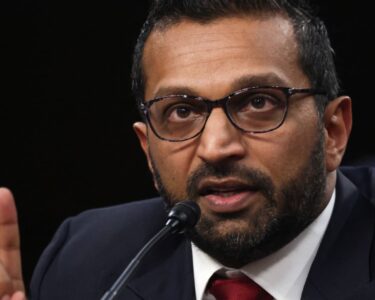This was CNBC’s live blog tracking developments on the war in Ukraine for July 24. See here for the latest updates.
Russia blamed Ukraine for an attempted “terrorist attack” in Moscow Monday, which did not result in casualties. The Russian Defence Ministry posted on Telegram that two Ukraine drones were “suppressed and crashed” in the early hours of the morning and reported “no victims.”
Moscow’s mayor Sergei Sobyanin said strikes were recorded on two non-residential buildings.
Ukraine has not yet responded to the claims. Its own capital, Kyiv, has suffered multiple Russian onslaughts in recent weeks, with frontline losses deepening, after the battered port of Odesa faced a “hellish night” on Sunday. The city was hit by a deadly Russian airstrike, which killed at least one person and left another 22 injured. Ukrainian member of Parliament Kira Rudik told Sky News that the night of the attacks was “probably the most vicious” since Russia’s full-scale invasion of Ukraine.
The hostilities destroyed a grain depot and large parts of the Spaso-Preobrazhenskyi Cathedral in the port city, according to Ukrainian officials. Damage to the agricultural depot comes less than a week after Russia pulled out of the U.N.-brokered Black Sea grain deal, which had enabled the delivery of Ukrainian supplies to global markets. Russia denied its involvement in the offensive.
Ukrainian President Volodymyr Zelenskyy said that his country’s forces are bracing for Russian drone attacks.
“Our focus is on safeguarding our people, cities, ports, and the Black Sea grain corridor. Robust responses to attacks by Russian terrorists are being prepared to maintain our security and protect our interests,” Zelenskyy wrote on his official Telegram channel.
“In all directions, our primary task is to inflict maximum damage on the occupiers, targeting their equipment, supplies, warehouses, and headquarters. Ensuring that Russia suffers losses every day is a just goal,” Zelenskyy added.
In recent days, Russian forces have carried out punishing drone strikes on port cities, like Odesa.
— Amanda Macias
Romanian President Klaus Iohannis slammed Russian attacks on port infrastructure close to his country’s border.
“I strongly condemn the recent Russian attacks against the Ukrainian civilian infrastructure on Danube, very close to Romania,” Iohannis wrote.
The NATO ally shares a border with Ukraine and a coastline on the Black Sea.
“This recent escalation poses serious risks to the security in the Black Sea. It also affects further Ukrainian grain transit and thus the global food security,” he added.
— Amanda Macias
Ukrainian Defense Deputy Minister Hanna Maliar wrote on the Telegram messaging app that approximately 35 square kilometers of land in the Bakhmut area have been liberated from Russian forces.
Maliar added that Russian troops are largely focusing their efforts in the directions of Kupiansk, Lyman, Bakhmut, Avdiivka and Marinka.
She said that the “fiercest battles are raging near Klishchiivka, Andriivka and Kurdiumivka.”
— Amanda Macias
Secretary of State Antony Blinken spoke with Romanian Foreign Minister Luminita Odobescu about the U.S.-Romanian bilateral relationship, according to a State Department readout of the call.
The two also discussed “collective security and unwavering support for Ukraine and Moldova,” according to State Department spokesman Matthew Miller.
Blinken and Odobescu also spoke about the fallout of Russia’s decision to leave the Black Sea Grain Initiative, including rising global food prices and tensions in the Black Sea region.
Romania, a NATO ally, shares a border with Ukraine and a coastline on the Black Sea.
— Amanda Macias
Ukrainian President Volodymyr Zelenskyy said that the first meeting of the Ukraine-NATO Council will be held on Wednesday.
“I thank NATO Secretary General Jens Stoltenberg for promptly convening the first meeting of the Ukraine-NATO Council,” Zelenskyy said in a post on the Telegram platform. The group is expected to discuss Black Sea security following Russia’s exit from the landmark deal that brokered a maritime humanitarian corridor for agricultural exports.
Zelenskyy also said that Western allies are preparing additional security packages that include air defense systems, artillery as well as long-range weapons.
“The recipe for ending the war is obvious: everything depends on the unity and determination of all who value freedom, culture, and life,” he added.
— Amanda Macias
Six people were injured in a four-hour Russian drone attack against port infrastructure along the Danube River early on Monday, Odesa Governor Oleh Kiper wrote on Telegram, according to a Google translation.
A grain warehouse and storage tanks were damaged, he added.
Ports on the Danube River have become increasingly important transport venues after Russia ended the U.N.-brokered Black Sea Grain Initiative on July 17, which had allowed the safe export of Ukrainian products.
The Russian defense ministry did not immediately respond to CNBC’s request for comment.
— Hannah Ward-Glenton
The Kremlin has denied any involvement in the air strike that demolished the Spaso-Preobrazhenskyi Cathedral in Odesa on Sunday.
Government spokesperson Dmitry Peskov described the allegations as “an absolute lie” in Google-translated comments reported by Russian state news agency Tass on Telegram.
The Kremlin said that the extensive damage was caused by a Ukrainian-launched missiles.
The Ukrainian Ministry of Defense did not immediately respond to CNBC’s request for comment.
The cathedral was struck Sunday during a night of attacks described as “hellish” by Ukrainian member of Parliament Kira Rudik, which claimed one life.
The Orthodox church is considered one of the most important churches in Ukraine and is part of the Historic Centre of Odesa — a UNESCO World Heritage site.
UNESCO Director-General Audrey Azoulay strongly condemned the hostilities, saying in a press release that “this outrageous destruction marks an escalation of violence against cultural heritage of Ukraine.”
— Hannah Ward-Glenton
Ukrainian forces have recaptured 12 square kilometers of land on the southern front in the last week, according to the country’s Deputy Defense Minister Hanna Maliar.
Maliar said the developments brought the amount of land recaptured since the start of the counteroffensive in early June to more than 192 square kilometers.
“In this direction, our Armed Forces are engaged in mine clearance, inflict damage on the enemy and are ready to move forward,” Maliar said in a video address distributed by the Ukrainian government, as reported and translated by Ukrainian media platform Ukrinform.
In Bakhmut, one of the country’s fiercest battlegrounds, Russian forces are “in a trap and … manoeuvrability there is limited by [Ukrainian] armed forces,” Maliar reportedly said.
The comments come as analysts suggest that Ukraine’s counteroffensive has been slower than expected.
Russian President Vladimir Putin reportedly acknowledged Ukraine’s counteroffensive Sunday during talks with Belarusian leader Alexander Lukashenko, but Putin described it as having “failed.”
CNBC is unable to verify the territorial gains and losses made by either Russia or Ukraine, and the Russian Ministry of Defense did not immediately respond to a request for comment.
— Hannah Ward-Glenton
Russian officials accused Ukrainian forces of attempting an overnight airstrike against Crimea, with Moscow claiming it used anti-drone equipment to foil the attack.
The Russian defense ministry wrote on Telegram that a total of 17 drones were used to target the peninsula and that there were no casualties, according to a Google translation.
CNBC has been unable to independently verify these reports, and Ukraine’s ministry of defense did not immediately respond to a request for comment.
— Hannah Ward-Glenton
The Russian ministry of defense accused Ukraine of a “terrorist” drone attack against Moscow early Monday, with the city’s mayor saying two non-residential buildings were hit.
The hostile drones were “suppressed” and “crashed,” the ministry wrote on Telegram, according to a Google translation.
Russia’s state-owned news agency Tass reported that debris was found close to the Russian ministry of defense building.
Kyiv officials have not publicly acknowledged the attack, which came the day after a Russian strike on the Ukrainian port city of Odesa.
In response to the aggression in Odesa, President Volodymyr Zelenskyy had tweeted Sunday morning, “There will definitely be a retaliation to Russian terrorists for Odesa. They will feel this retaliation.”
CNBC has been unable to independently verify the developments on ground. Ukraine’s defense ministry did not immediately respond to a request for comment.
— Hannah Ward-Glenton
Russian President Vladimir Putin said Ukraine’s counteroffensive “has failed” as he hosted closely allied Belarusian leader Alexander Lukashenko for talks in St. Petersburg Sunday.
“There is no counteroffensive,” Lukashenko said, according to Reuters.
Putin reportedly replied, “It exists, but it has failed.”
Defense analysts have suggested the window of opportunity for Ukraine to make a breakthrough with its counteroffensive is growing smaller.
“The danger then is that they will not be able to use the bulk of their forces in sufficient mass to make a difference … to create a real punch when they decide to really start,” Michael Clarke, a defense analyst and former director-general of the Royal United Services Institute (RUSI) think tank told CNBC Wednesday.
— Hannah Ward-Glenton, Holly Ellyatt contributed to this report.
Joseph Glauber, senior research fellow at the International Food Policy Research Institute, discusses the halt of the U.N.-brokered Black Sea grain deal after Russia’s withdrawal and the options left for Ukraine to export its grains.
United Nations Under-Secretary-General Rosemary DiCarlo raised concerns about Russian threats to target civilian vessels navigating in the Black Sea and reports of newly placed sea mines that could pose a risk to civilian ships.
“Any risk of conflict spillover as a result of a military incident in the Black Sea, whether intentional or by accident, must be avoided at all costs, as this could result in potentially catastrophic consequences to us all,” DiCarlo said in remarks before the United Nations Security Council.
“The new wave of attacks on Ukrainian ports risks having far-reaching impacts on global food security, in particular, in developing countries,” she said.
She added that attacks on civilian infrastructure may also constitute a war crime.
— Amanda Macias
The United Nations Educational, Scientific and Cultural Organization, or UNESCO said that at least 270 cultural sites in Ukraine have been damaged due to the ongoing war.
“A preliminary assessment in Odesa has revealed damage to several museums inside the World Heritage property, including the Odesa Archaeological Museum, the Odesa Maritime Museum and the Odesa Literature Museum,” the U.N. agency wrote in a release.
“They had all been marked by UNESCO and local authorities with the Blue Shield, the distinctive emblem of the 1954 Hague Convention,” the agency added.
— Amanda Macias
The World Health Organization has recorded at least 1,067 attacks on vital health services in Ukraine since Russia’s late February invasion last year.
The World Health Organization’s Surveillance System for Attacks on Health Care estimates that healthcare facilities were damaged 952 times, ambulances were targeted in 124 cases and at least 284 attacks were carried out on crucial medical supplies. The surveillance system also estimated that attacks on health services led to at least 101 deaths and 139 injuries.
The Kremlin has maintained that its forces do not target civilian infrastructure like hospitals, schools and residential buildings.
— Amanda Macias
Zelenskyy sacks UK ambassador after media comments; U.S. says Ukraine now using cluster bombs.






